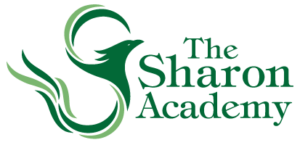HS to adopt full-year schedule model in 2024-25
TSA was founded on the 10 Common Principles of the Coalition of Essential Schools, including Learning to Use One’s Mind Well and Less is More: Depth Over Coverage. These concepts are at the heart of TSA’s deeper learning model—a model that has guided the school’s pedagogical thinking since its founding and continues to compel its leadership to seek ways to best meet the needs of its students. As our student population has changed over the years, these concepts have required teachers and staff to periodically reconsider who we are and who we must be as a school.
In 2021/22, as schools across the state emerged from the pandemic, the high school embarked on a bold experiment with its schedule. This involved a later start time for classes to align with what academics understand about adolescent brain development, longer classroom time to enable greater depth of teaching and learning, and a modular schedule that focuses learning on fewer subjects at a time. Learn more.
After two years with this model, the high school began to assess the outcomes of this module schedule through teacher, parent, and student surveys and focused discussions. A schedule is not a solution nor a program; rather, it is a tool—a framework for organizing our time. Understanding that what we do with that time makes us who we are and matters most to students, we have decided to return to a full-year model, where students take all of their classes all year without interruption. A calendar and FAQ list will be published by the end of January along with full presentations to parents/guardians and students in large groups and small.
Considerable work has been done to reach this conclusion, beginning in September 2023, when a task force of faculty, staff, parents, and a student was convened to examine priorities, goals, and possible permutations of modular and non-modular schedules. Over the subsequent two months, staff were then engaged in assessing four possible schedule models; they narrowed the options to a full-year model and a schedule with five modules (versus the current eight). Student and parent feedback were solicited in November and faculty and staff were presented with the modified options.
There was significant discussion about the benefits and drawbacks of each of the schedule options. TSA provides students with a degree of flexibility, ie dual enrollment, electives, HACTC participation, that many of the faculty and staff feel are essential to maintain. In the final analysis, there was a consensus that the school’s relationship with students was paramount, and Head of School Mary Newman and Assistant Head of School Kate Fabrikant met with members of the Board of Trustees to advocate for the full-year model as the best way forward to achieve this relationship. The Board endorsed the proposal at its December 9 meeting. Since then, the full staff and board have been working on the details of the schedule and transition plan.
While our experiment with modular scheduling may not have succeeded in fostering the kind of deeper learning that we had hoped, it exemplifies the spirit of TSA and demonstrates the commitment of our faculty and staff to self-knowledge and improvement. At the same time, we recognize that such experimentation has a cost, which we do not take lightly. We appreciate the support of our families and our community as we continue to consider and attempt innovative approaches to nurture our students and awaken them to their potential. Beyond this question of scheduling, TSA is committed to continuing to focus on the concepts of deeper learning through work on professional development and curriculum design.
